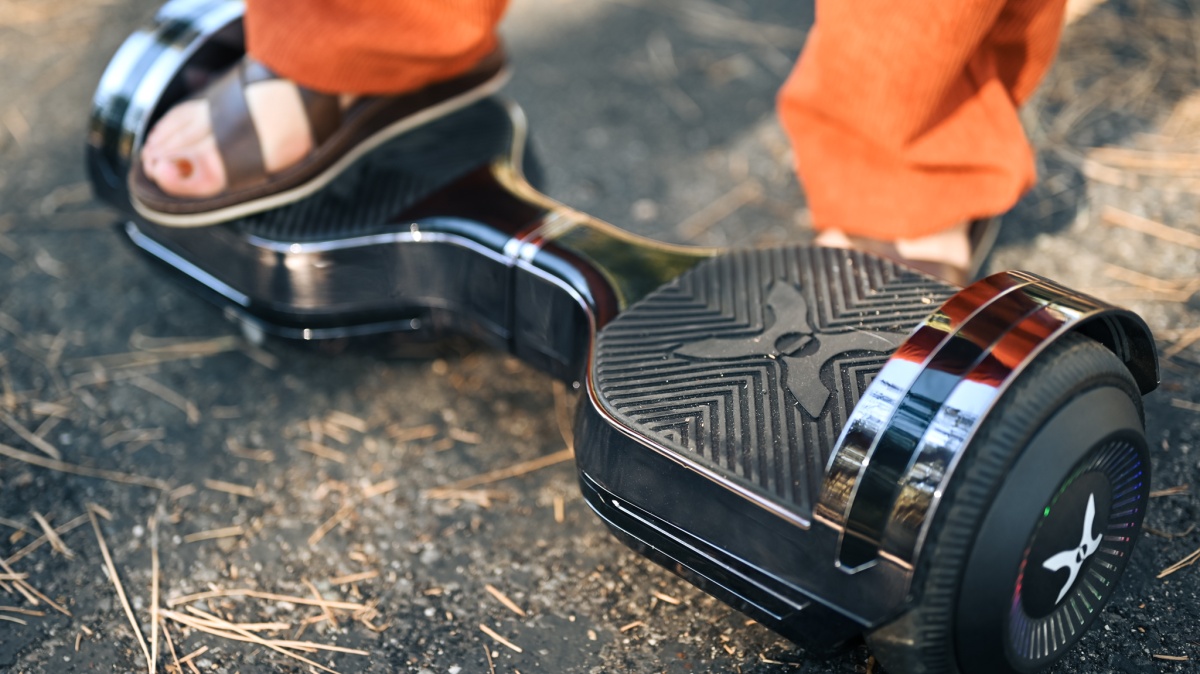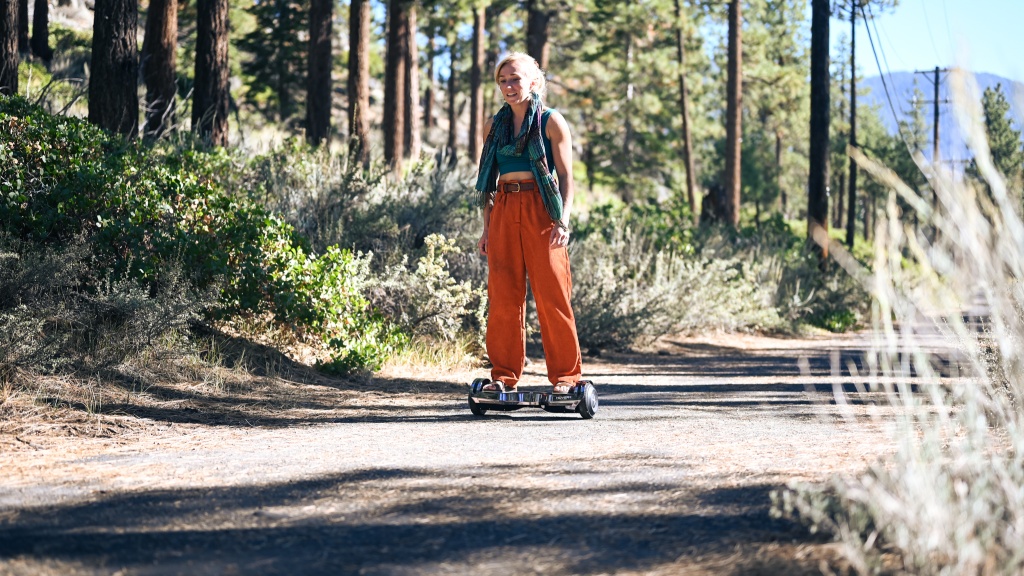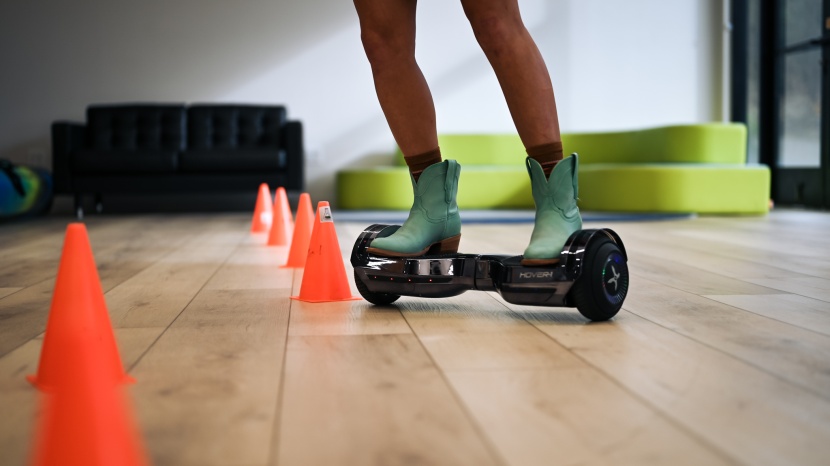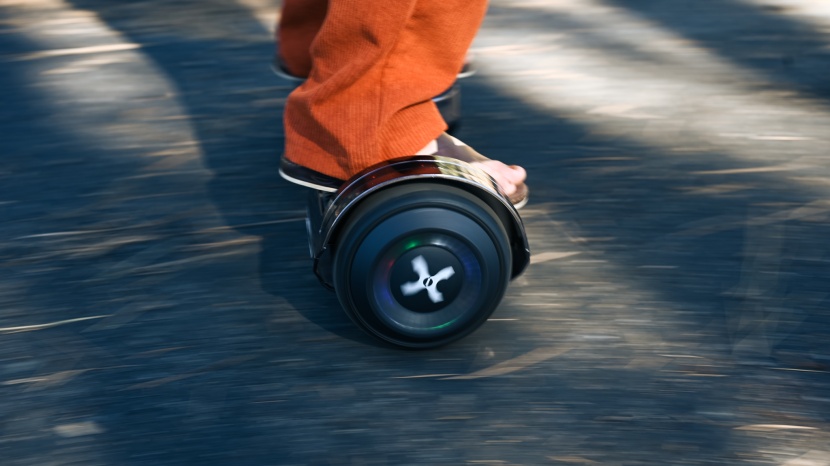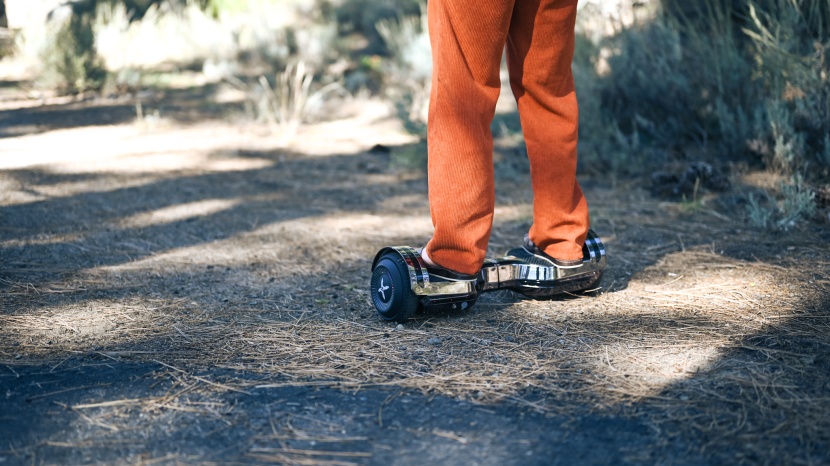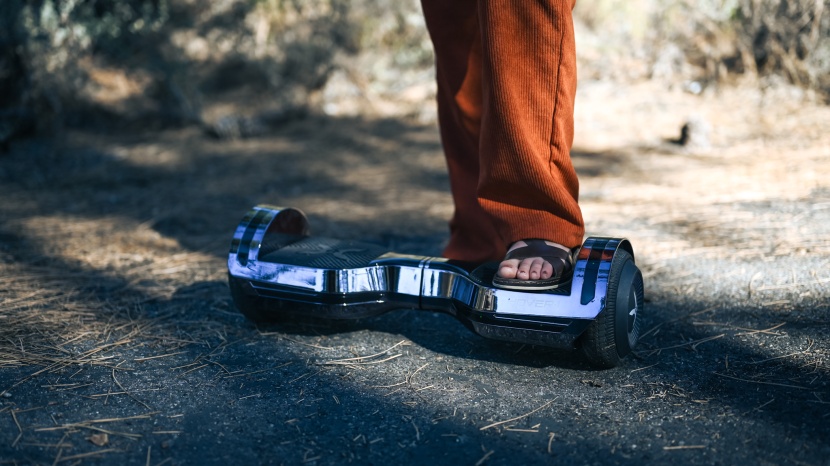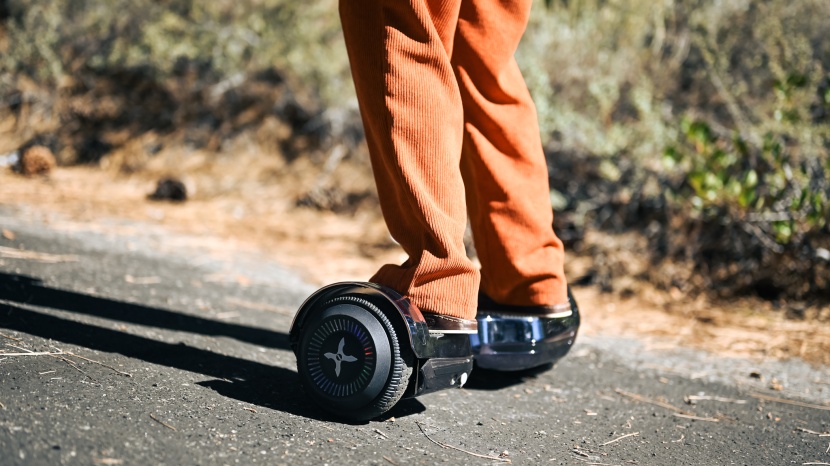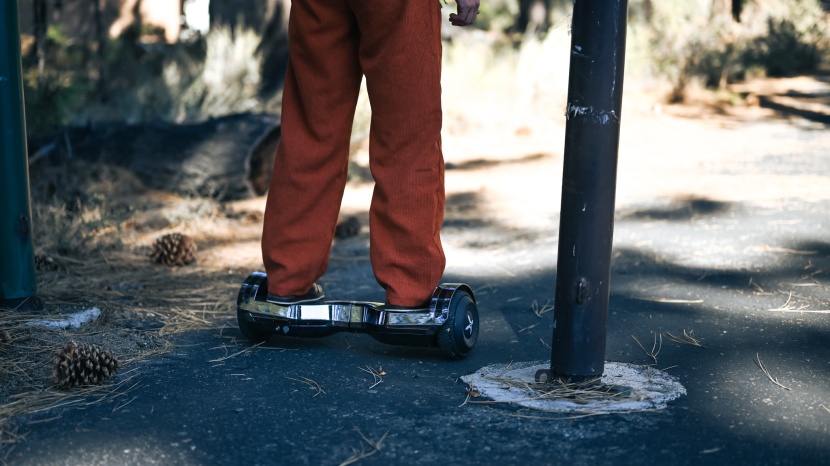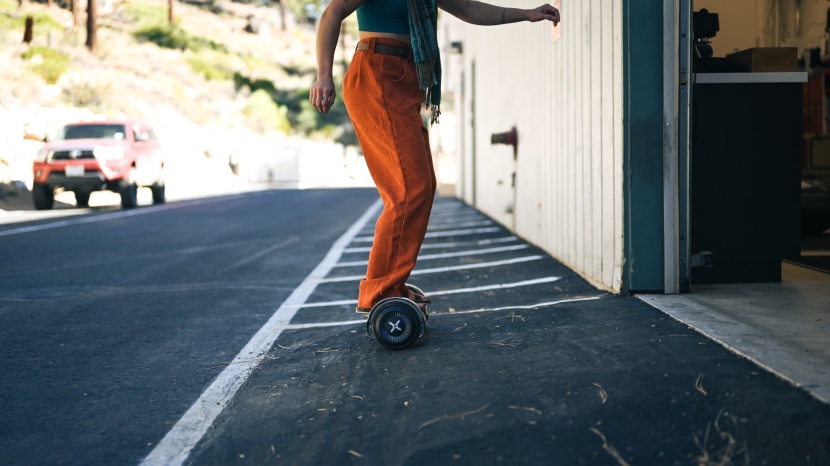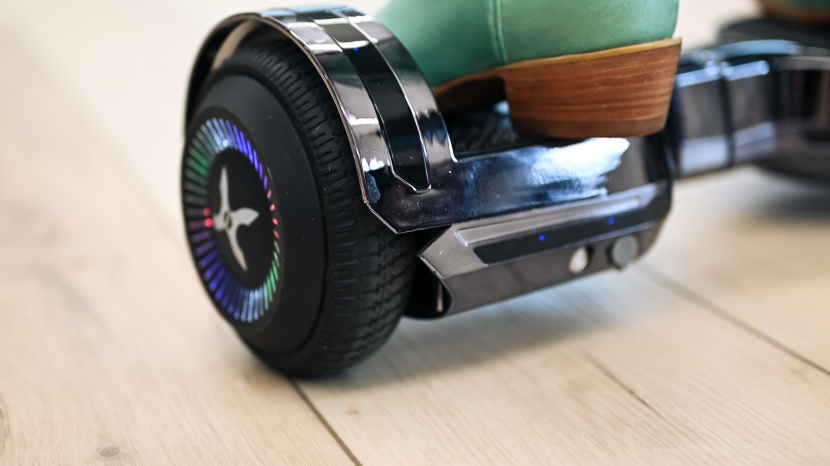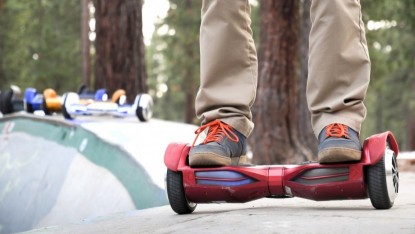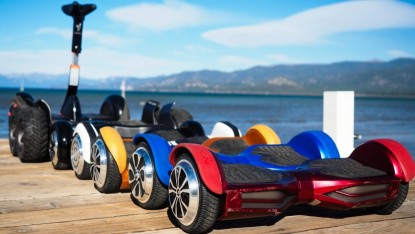
Our Verdict
Our Analysis and Test Results
What sets the Hover-1 Chrome 2.0 apart from the competition is its balance of performance and saving. The board is one of the highest-scoring models in our fun factor evaluation, yet its cost is below average. If you want a stable platform for playing around, this board's spacious foot pads and responsive controls will satisfy without breaking the bank.
Fun Factor
While some hoverboard designs focus on commuting, most are focused on recreation. As such, it stands to reason that our fun metric is the thing we look at first and foremost. For the Chrome 2.0, we looked at the Bluetooth connectivity, tested its maximum speed, and assessed its stability at speed. We had office staff members run this board through our obstacle course for general feel and maneuverability. Finally, we looked at odds and end details like weight, color options, and the availability of protective skins. When taken as a whole, the Chrome 2.0 excels in this metric.
The most important contributor to this score is the rider feedback we get after our testers traverse an obstacle course. After working through the twists and turns of the course, we ask one question: how fun was the board to ride? The results were clear — the Chrome 2.0 is fun. The board is consistent in motion with no lurching or unexpected tilting, and the ride smooths out at speed. One complaint we heard frequently was that the board doesn't have a lot of “pick-up” when accelerating. However, this shortcoming is counterbalanced by its agility in corners and overall maneuverability. Part of the Chrome 2.0's success here is its large foot pads. The increased depth of the pads contributes to this board's stability and comfort, making it more fun to ride.
We also tested for maximum speed. To do this, we get a running start and record the time it takes the board to traverse a 36-foot track. Each board gets three attempts, and then we average the speed. The Chrome 2.0 averaged 5.5 miles per hour in this test. It isn't the fastest board in the class — top-scoring hoverboards can reach speeds of 10 mph or greater — but it's pretty good when you factor in the board's weight and size, as these specifications are related to motor size and power.
We also account for weight in this metric because a board has to be carried at some point, and it is not fun to lug around 30+ pounds, especially for a kid. The Chrome 2.0 weighs in at just 15.2 pounds, which is way below average for the class. That said, it lacks a carrying handle, making it a bit more burdensome despite its lightweight.
Many hoverboards we review come with speakers that can connect with a smart device via Bluetooth, allowing the rider to blast their favorite tunes while they cruise. We found the Bluetooth on the Chrome 2.0 easy to connect to, and the sound quality of the speakers reasonably good. One tester commented that she could clearly understand podcasts while riding.
Other fun features are the number of color options the board comes in and the availability of aftermarket skins. As of this writing, the Chrome 2.0 comes in pink, gunmetal, blue, and rose gold. There are also protective skins available.
Outdoor Capabilities
This metric is comprised of evaluations of riding performance on adverse surfaces such as inclines, long and short grass, dirt and sand, cracks, bumps, and door thresholds. This type of terrain is tough on boards with smaller wheels, and the Chrome 2.0 was no exception. The board struggled mightily when leaving smooth surfaces. Long grass and loose sand proved to be no-go zones for this board as this terrain stopped it in its tracks. However, it managed the others relatively well, with packed dirt and sand being the most manageable.
Next up was a hill test. We used a fairly steep, evenly paved road for this evaluation and ran the board up it to see if it decelerated, became unstable, or could not climb at all. We then turn the board around to test how it felt on the descent. The Chrome 2.0 did okay in this test — it could climb to the hill, albeit at a snail's pace, and felt reasonably stable both on the climb and descent.
While paved hills pose a challenge to the motors propelling the Chrome 2.0, grass, dirt, bumps, and cracks challenge the whole board. Specifically, these terrain features expose limitations in gyroscopes and motors, as well as wheels and platform design. As has been said, the Chrome 2.0 was overcome by tall grass and sand. However, it was able to traverse the short turf decently and even managed to climb modest grass hills. Similarly, the board did well on compacted dirt and sand.
Unfortunately for hoverboard riders, the whole world isn't paved over with smooth concrete — these vehicles will inevitably encounter cracks and bumps. The Chrome 2.0 has relatively small wheels at 6.5 inches in diameter. Despite this disadvantage, it does reasonably well when navigating bumps and cracks. One issue encountered on other boards is an unpredictable pulling back and forth as it tries to deal with the difficult terrain. This inconsistency was not an issue with the Chrome 2.0. That said, it did struggle with going over an industrial double-door threshold strip. Yet, even a steep hump such as this was manageable with some practice.
Support
Hoverboard accidents happen, and you'll want to have good customer support to resolve them when they do. Our support metric looks at various factors, such as the likelihood of damage in a minor crash, whether a customer support phone number is available, and, when contacted, how helpful the manufacturer is in resolving minor issues. Finally, we look at the warranty to see what it covers and how long. The Chrome 2.0 received an average score for this metric largely because of its automated customer service and the so-so durability of the board's plastic shell. It has a 90-day warranty which is in the typical range for the class.
The Chrome 2.0 endured one minor crash during our testing, resulting in a small chunk of plastic breaking off. Aside from that, the board displayed far less wear and tear than the others in the class. While we were impressed with the board's durability, we were not with the customer service. Firstly, there is no phone number to talk to a live person. To get help, we had to submit a work ticket online and wait for a response. We received a canned response the same day we submitted our ticket and another shortly after that was more specific to our question. However, no actionable advice or resources were offered in the email. Our experience was frustrating, given the time and information needed to fill out the work ticket.
Battery
Last but not least is the battery metric. While we do not weight this evaluation as heavily as the others, it is one that you'll want to pay attention to if you're planning on going for longer cruises on your board. First, we look at the range of the hoverboard — the Chrome 2.0 will roll at full tilt for a fairly short 3.3 miles and give you about 40 minutes of riding. Conversely, the board takes 4.5 hours to charge. While it has a relatively limited run time at full speed, when it is used for play (as in our obstacle course), the battery lasted quite a bit longer at 1 hour and 47 minutes. However, the performance started to degrade before it issued a low battery warning. When the low-battery warning sounded, the board shut off less than 5 minutes following.
Should You Buy the Hover-1 Chrome 2.0?
The simple answer is yes. However, this answer assumes that the board will be used on firm, mostly flat surfaces. The Chrome 2.0 is great for goofing around in the driveway or the park. It is not good for off-roading or traveling long distances.
What Other Hoverboards Should You Consider?
If you want to use a hoverboard to commute or to go off-road, the large wheels and powerful motors on the Segway Ninebot S can't be beaten. It is more like vehicles as opposed to toys.
| Awards | Best Hoverboard For Most People |
|---|---|
| Price | $230 List Check Amazon (on sale!) |
Overall Score  |
|
| Star Rating | |
| Bottom Line | For the price, this board is notably stable and comfortable, but it has drawbacks in off-road abilities and range |
| Pros | Predictable performance, comfortable ride, stable |
| Cons | Mediocre battery life, limited power, sub-par customer service |
| Rating Categories | Hover-1 Chrome 2.0 |
| Fun Factor (50%) | |
| Outdoor Capabilities (20%) | |
| Support (20%) | |
| Battery (10%) | |
| Specifications | Hover-1 Chrome 2.0 |
| Measured Run Time | 107 min |
| Measured Weight | 15.2 Ibs |
| Measured Speed | 7 mph |
| Measured Range | 3.3 mi |
| Measured Charge Time | 4.5 hours |
| Weight Limit | 220 Ibs |
| Wheel Size | 6.5" |
| Bluetooth | Yes; app and music |
| Warranty | 90 days |


